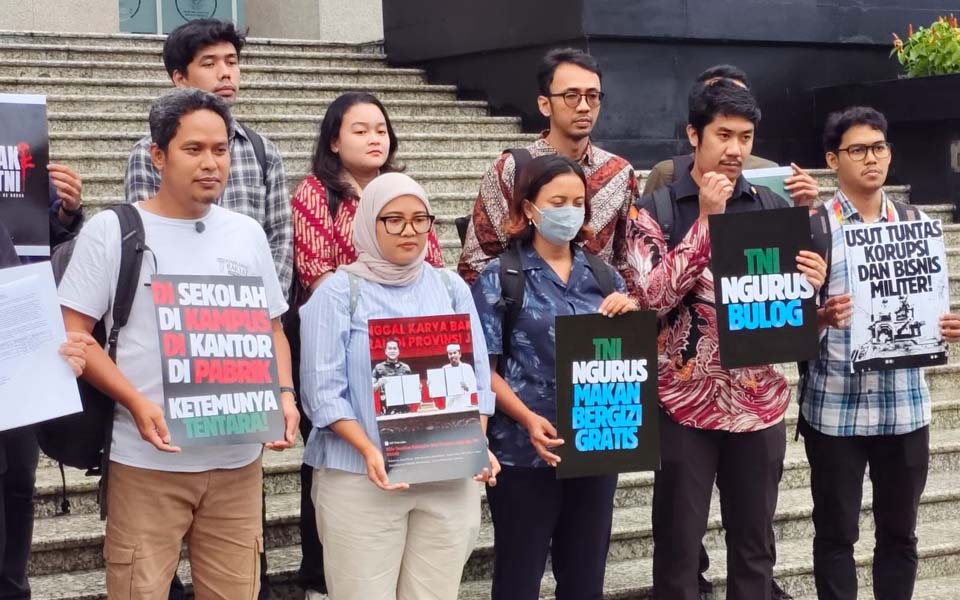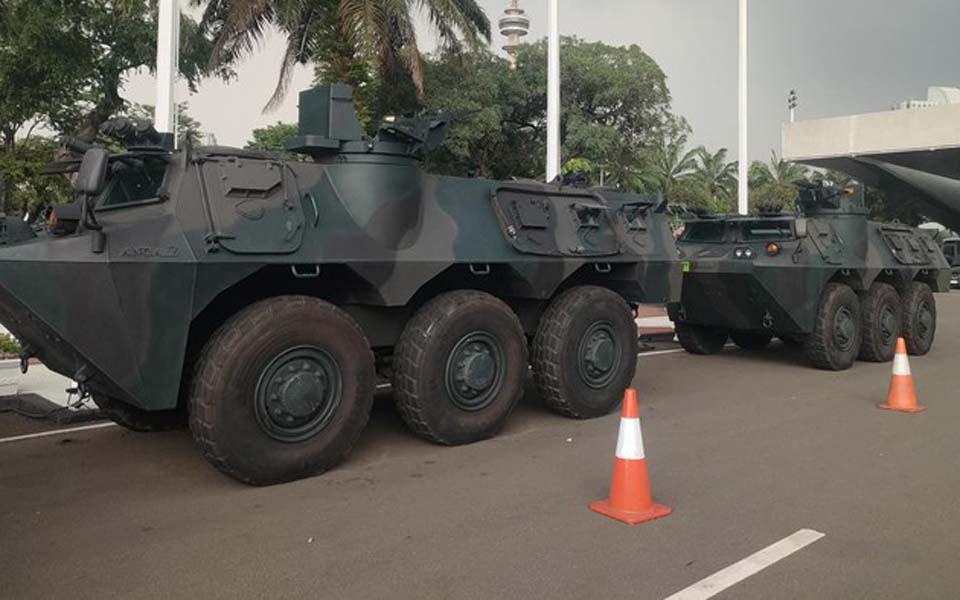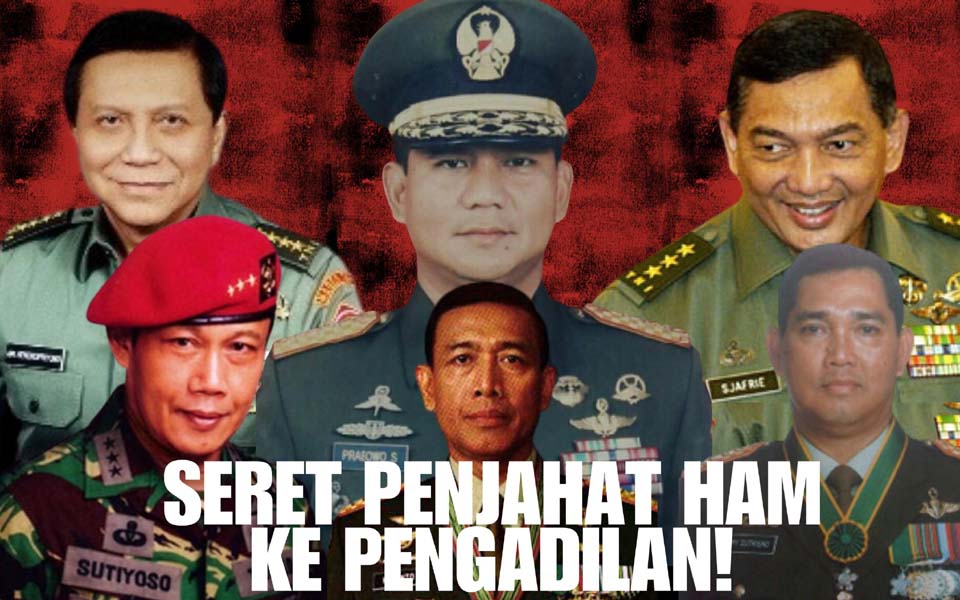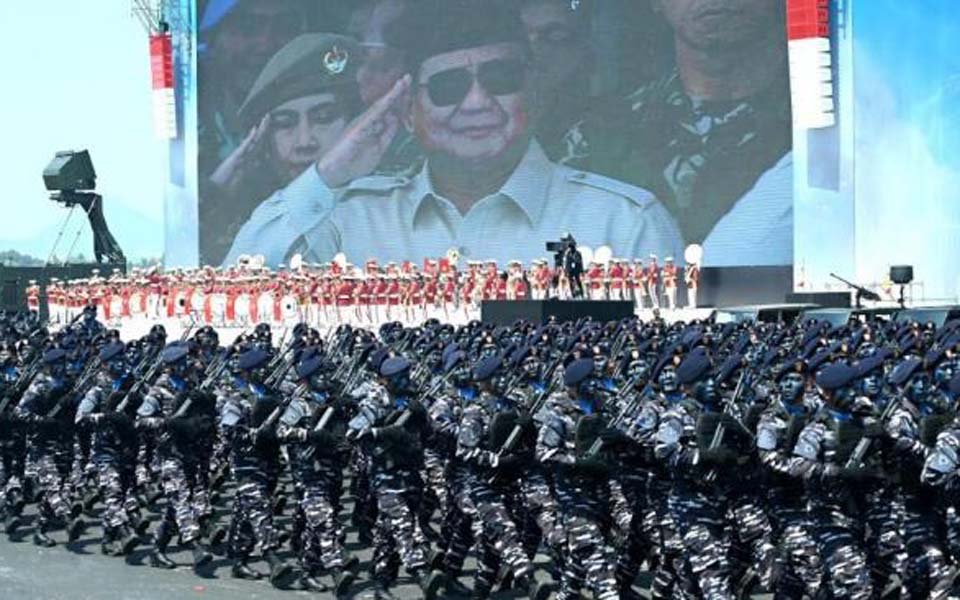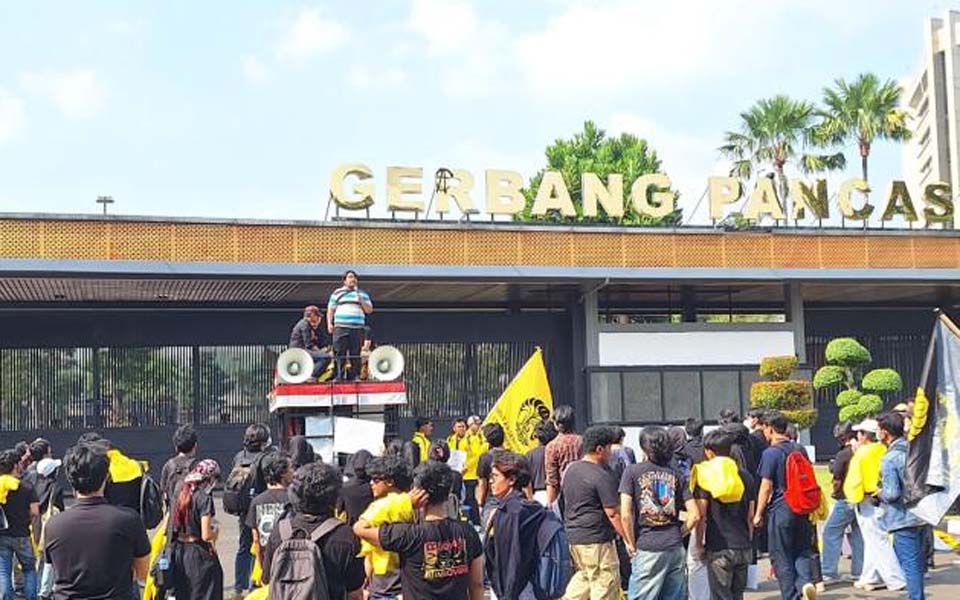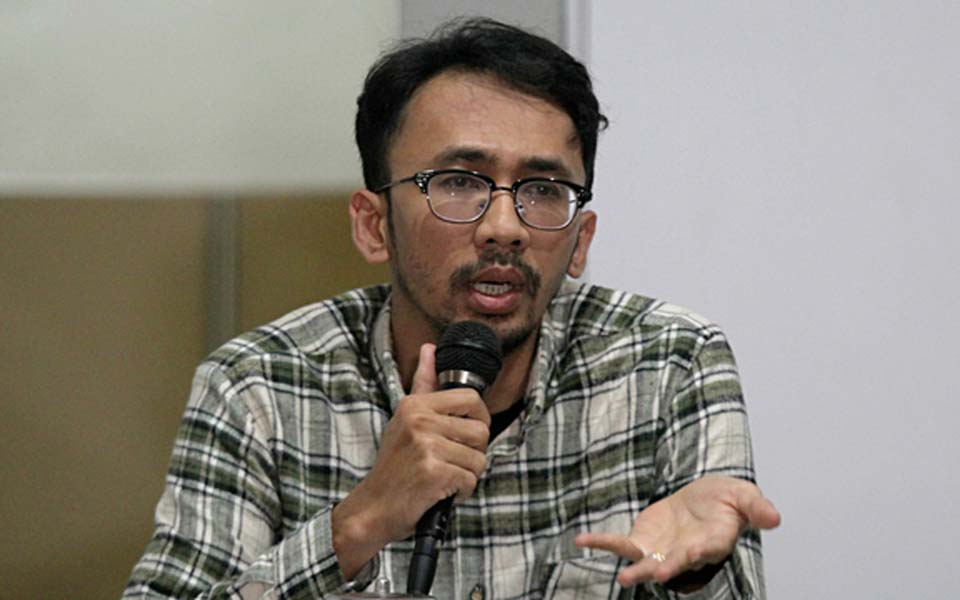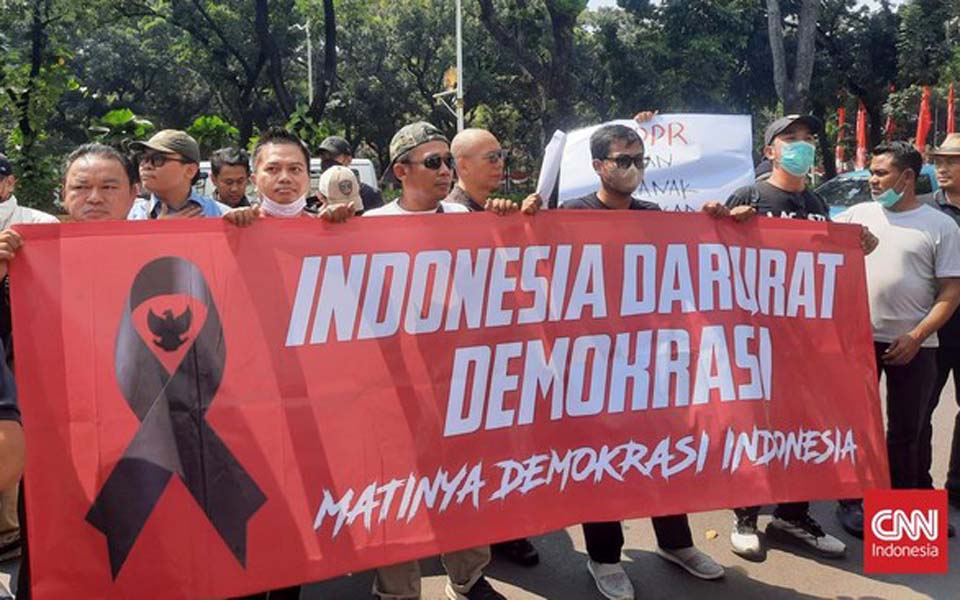Singgih Wiryono, Dani Prabowo, Jakarta – The Civil Society Coalition for Security Sector Reform has alluded to West Java Governor Dedi Mulyadi's policy of sending troublesome students to Indonesian Military (TNI) barracks for guidance.
This was conveyed by a Coalition member from the Indonesian Legal Aid Foundation (YLBHI), Zainal, when submitting a judicial review of Law Number 3/2025 on the TNI with the Constitutional Court (MK) on Wednesday May 7.
He said that the judicial review submitted by Civil Society Coalition is at the same time a warning to the regional heads over the normalisation of militaristic practices against civilians. "Moreover for example what is happening in West Java, children are being put into military barracks", said Zainal.
He said that the practice of the normalisation of militarism in the civil realm will damage the democratic system in Indonesia. "Later it will impact on the enforcement of human rights and will narrow the space for civilian supremacy", he said.
Aside from the issue of children being taken to military barracks, Zainal also touched on the TNI's involvement in controlling forest areas, which in fact, according to Zainal, is under the realm of law enforcement and is not the authority of the military.
"Which means here the TNI is being used as a tool to evict communities who are in conflict over agrarian issues and of course there still many more of these", he added.
Arief Maulana from the YLBHI revealed that there are a number of demands in the judicial review that they have submitted.
A demand in the provisions requests that the Constitutional Court postpone the enactment of the TNI Law in an interim decision before there is a final and binding ruling on the review.
"An interim decision or provisional decision so that the Constitutional Court, the Constitutional Court judges postpone the enactment of Law Number 3/2025 on Revisions to the TNI Law until the Constitutional Court's final ruling. That's the first", Maulana said.
In the provisions, they are also requested that the Constitutional Court order President Prabowo Subianto not to issue any government regulations related to the new TNI Law.
"We are also then demanding and also asking the Constitutional Court judges [to order Prabowo] not to issue policies and or strategic actions relating to the implementation of the law, the revisions to the TNI Law, until the Constitutional Court's ruling", he said.
Also in provisions is a request that the executive not issue policies related to the new TNI Law that should be implemented in all sectors, including for ministries, government institutions and related agencies.
"In order to avoid violations of the Constitution which then have an impact on human rights violations or losses to society", he said.
Then in the main part in the judicial review, Maulana said that the Civil Society Coalition is requesting that the Constitutional Court judges declare that TNI Law Number 3/2025 does not have binding legal force. "So that then Law 34/2004 on the TNI [before the revisions] is reimposed in its entirety", he said.
The TNI Law has been legally challenged eight times. With the judicial review from this Civil Society Coalition, the number of lawsuits against the TNI Law has now reached nine requests.
[Translated by James Balowski. The original title of the article was "Gugat UU TNI, Koalisi Masyarakat Singgung Anak "Nakal" Dibawa ke Barak".]





